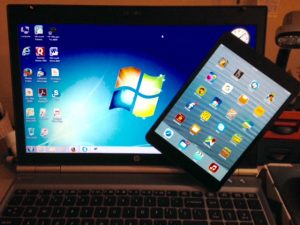 So, are laptops in the classroom “a lifeline” or a distraction that also negatively affects note-taking and learning? That’s a question on many researchers’ minds…
So, are laptops in the classroom “a lifeline” or a distraction that also negatively affects note-taking and learning? That’s a question on many researchers’ minds…
In a 2014 study, researchers Pam Mueller and Daniel Oppenheimer concluded that “,,, Even if laptops are used strictly to take notes, typing notes hinders students’ academic performance compared with writing notes on paper with a pen or pencil.”
Now comes a piece in Educational Psychology, “How Much Mightier Is the Pen Than the Keyboard for Taking Notes,” to see if the 2014 conclusions still hold true today, and …
It found that kids who take paper and pen/pencil notes do somewhat better on factual test questions but not so much on ones that entail concepts–conceptual learning.
So, while at least in this case, there is no clear takeaway about the virtues of typed or handwritten notes, my vote is always with the latter, as the act of writing is said to help imprint information on the brain. Not keyboarding.
Into the mix comes the potential note-taking role that Artificial Intelligence (AI) may play in our already heavily tech-influenced classrooms.
AI company Voicea is already making note-taking inroads in the business world with EVA, its digital voice assistant. So far, however, it’s staying out of our nation’s schools.
The reason: While “automated transcription” might be fairly simple to put in place in, say, a conference room, that’s not the case in busy classrooms and/or large lecture halls.
Plus, writes Education Week’s Benjamin Herold, “… An emerging body of research on computer-based note-taking offers reason to be skeptical that AI note-takers would actually help students learn.”
How about you: Hand-Written? Keyboard-Typed? AI Note-Taker?